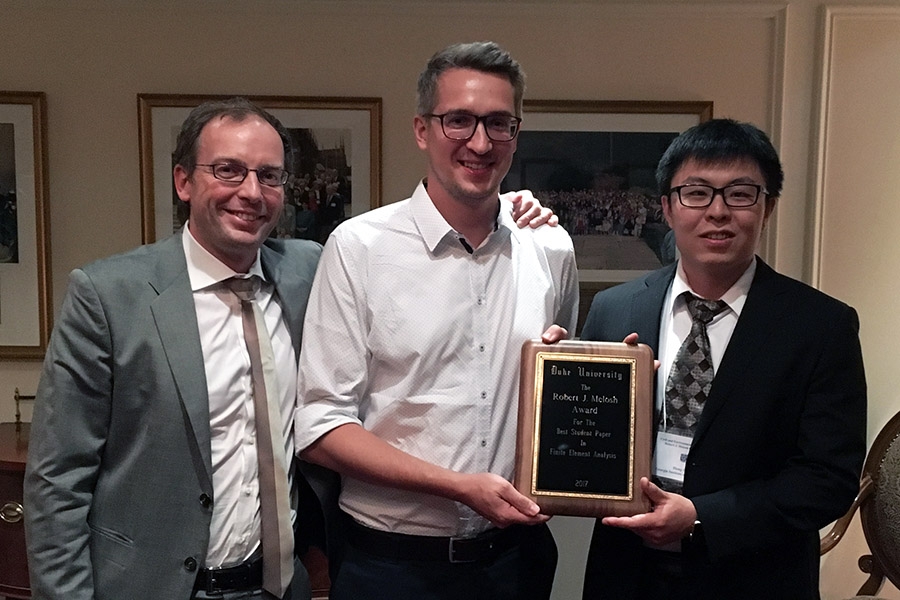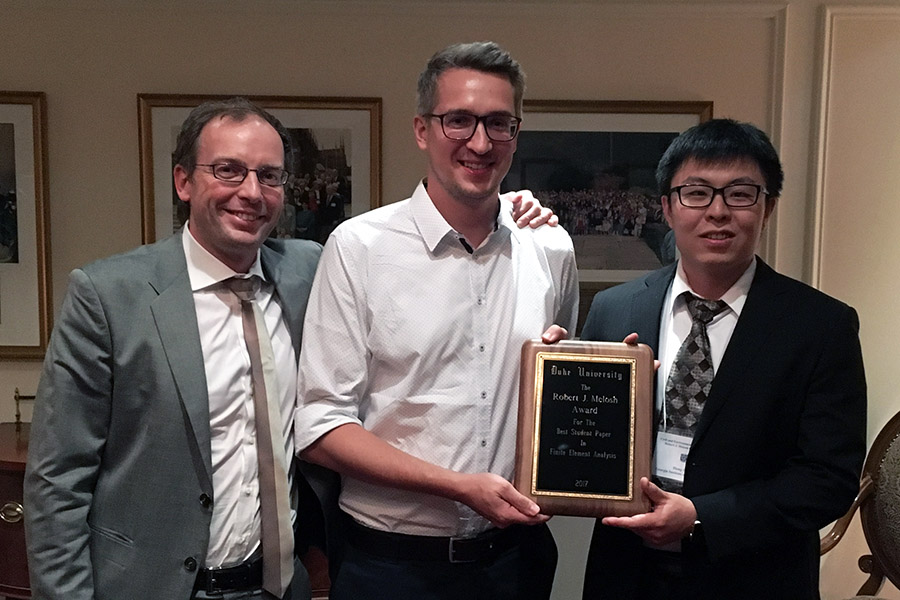
 Civil engineering Ph.D. student Heng Chi, right, won the Robert J. Melosh Medal from Duke University in late April. Chi, who is the first Georgia Tech student ever to win the prestigious competition in computational mechanics, stands with co-winner Matthias Mayr, center, from Technical University of Munich, and Duke Associate Professor Guglielmo Scovazzi. (Photo Courtesy: John Dolbow/Duke University) |
UPDATED May 10, 2017
Ph.D. student Heng Chi has accomplished something no other Georgia Tech student has: winning the prestigious Robert J. Melosh Medal Competition.
Chi was one of two winners this year at the competition that recognizes the best student paper on finite element method, a mathematical approach to solving engineering problems by breaking them into simpler parts. He said the recognition means a lot — and will open doors for his future.
“The [Melosh Medal] is quite competitive, with participants from all over the world,” Chi said. “The judges are all distinguished scholars and experts in the field of numerical methods. Winning this competition means that my work is recognized by the experts in the fields.
“Second, it opens up new possibilities to my career. Being recognized by the award can significantly increase my competitiveness in seeking jobs and bring me great opportunities in the next stage of my career.”
The paper Chi presented proposes a new technique that “allows us to relax the geometries of the discretization that we use to model materials under large deformation — for instance, the stretching of rubber,” he said.
The idea is to expand the geometric shapes that can be used to model structures or other engineering problems in finite element analysis — typically triangles and four-sided shapes like squares and rectangles. Chi builds on an approach called “virtual element method,” or VEM, that uses a broader array of geometry, but has limitations.
“My adviser [Glaucio Paulino] provided me with tremendous encouragement and support when applying for this award. His encouragement gave me a lot of confidence,” Chi said.
“Winning the medal will also increase the visibility of our group and Georgia Tech in the field of computational mechanics and numerical method.”
Learn more about Chi's work in our series "30 Second Thesis."
